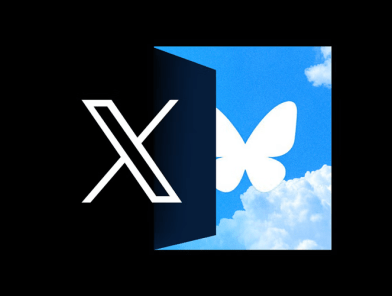The digital revolution has fundamentally reshaped the landscape of adult entertainment and personal connection. Platforms for webcam modeling, exclusive content, and professional escort services like EA Girls have empowered creators and service providers by fostering direct, unfiltered connections with a global audience. This system thrives on a powerful, often beautiful, illusion: the feeling of a personal bond. For the vast majority of users, this remains a healthy form of escapism and appreciation. However, a disturbing and growing undercurrent threatens the safety and mental well-being of those on the other side of the screen. We are witnessing an epidemic of obsession, where the line between dedicated fan and dangerous stalker is being systematically erased, leaving a trail of fear and anxiety in its wake.
Understanding the Psychology: The Parasocial Trap
To comprehend this phenomenon, we must first acknowledge the psychological engine that drives it: the parasocial relationship. These are one-sided connections where an individual feels a deep, intimate bond with a media personality who is completely unaware of their existence. In the context of adult content and companionship, this dynamic is intentionally amplified. The performer or companion is not a distant movie star; they are someone who responds to your comments, knows your screen name, and provides a simulated, personalized experience. This fabricated intimacy is a powerful product, but when a user's real-life social connections are lacking or they struggle with mental health issues, the brain can struggle to distinguish the professional performance from genuine romantic interest. The fantasy becomes their reality, and any threat to that fantasy is perceived as a profound personal betrayal.
The Slippery Slope: From Appreciation to Entitlement
The descent from being a valued supporter to a problematic figure is rarely a sudden jump. It is a slow, insidious creep, marked by a series of escalating red flags that creators and platforms like EA Girls are trained to recognize.
It often begins with an overwhelming presence. A single user appears in every live stream, sends a constant stream of messages across all social media platforms, and becomes possessive, expressing jealousy over the creator's interactions with other fans. What might initially be flattering quickly becomes suffocating. The language shifts from "I love your content" to "I love you," and then to "We are meant to be together." This sense of entitlement is the core of the problem. The individual begins to feel they have a right to the creator's time, attention, and even affection, viewing the financial transaction not as payment for a service, but as an investment in a shared future.
Case Studies: When the Screen is No Longer a Barrier
The theoretical becomes terrifyingly real through the stories shared by performers and companions. These are not rare anomalies; they are daily fears.
The Digital Detective: A successful webcam model with a significant following began noticing a user who was not only a high tipper but also seemed to know an unsettling amount about her local city. He would reference weather events or local news, claiming it was a coincidence. The situation escalated when he sent her a photo of her favorite local coffee shop with the caption, "Wish you were here." He had used background details from her streams, reflections in her glasses, and snippets of conversation to pinpoint her neighborhood. It took a formal police report and a move to a new apartment to reclaim her sense of security.
The Savior Complex: A content creator on a subscription platform had a fan who started sending large, unexpected tips alongside messages about his profound loneliness and depression. He confided in her as his only source of light. Soon, the messages turned manipulative: "If you don't reply, I don't know what I'll do," and "My happiness depends on you." The creator, a compassionate person, felt trapped between her own safety and a terrifying sense of responsibility for a stranger's mental health. This emotional blackmail is a common and deeply damaging tactic used by obsessed individuals.
The Jilted "Lover": Through EA Girls, a companion met with a client for a single, professional engagement. Despite the clear boundaries of their interaction, the client became fixated. He began creating multiple email accounts to bypass her communication blocks, sending lengthy essays about their "connection" and "destiny." He then started leaving negative reviews on her profile, not about her service, but accusing her of being "cold" and "heartless" for not reciprocating his feelings a clear attempt to damage her professional reputation as punishment for rejecting his fantasy.
A Survival Guide for Creators: Fortifying Your Digital and Mental Space
For those in the public eye, protection is no longer optional; it is a critical part of the profession. Here is a multi-layered approach to security:
-
Operational Security is Non-Negotiable: This is the first and most important line of defense. Never use your real name. Use a dedicated, separate email and phone number for your work. Be hyper-vigilant about what appears in the background of your photos and videos a unique street sign, a distinctive window view, or a prescription bottle can be all a determined individual needs. Consider using a VPN to mask your IP address and a PO Box for any physical mail.
-
Establish and Enforce Boundaries Ruthlessly: Your time and emotional energy are valuable. Set clear rules for communication from the start. Designate specific hours for responding to messages and stick to them. Do not feel pressured to engage in conversations that make you uncomfortable, no matter how much a user has paid. Your professionalism is not a license for their emotional dumping.
-
Leverage Your Tools and Community: Use platform block and report functions without hesitation or guilt. The moment a user shows signs of obsession, block them. If they harass you from new accounts, report them for ban evasion. You are not overreacting. Furthermore, connect with other creators. Private forums and groups are invaluable for sharing screenshots of problematic users, offering support, and learning from the collective experience of your peers.
-
Prioritize Your Mental Health: Dealing with this level of pressure is exhausting. The constant vigilance, the fear, and the emotional manipulation take a toll. It is essential to have an offline support system, whether it's friends, family, or a therapist who understands the unique stresses of your work. Remember, you are providing a service; you are not responsible for the emotional well-being of your clients.
A Message to the Audience: Reclaiming Respect and Reality
Finally, this is a conversation we must have with the audience. True admiration is rooted in respect for the person and their craft. It is understanding that the persona you see is a performance, a role played by a real human being with a right to privacy, safety, and a life entirely separate from your screen.
If you find yourself feeling an all-consuming need for a creator's attention, or becoming jealous of their interactions with others, it is time to take a step back. Mute their channels, cancel your subscriptions, and seek connection in your offline world. The value of a platform like EA Girls lies in its clarity and professionalism; it facilitates consensual, transactional encounters with clear boundaries. Respecting these boundaries is not just a rule it is a fundamental act of recognizing the humanity of the person you are engaging with. The screen is a stage, and mistaking the performance for reality is a dangerous game that hurts everyone involved.













